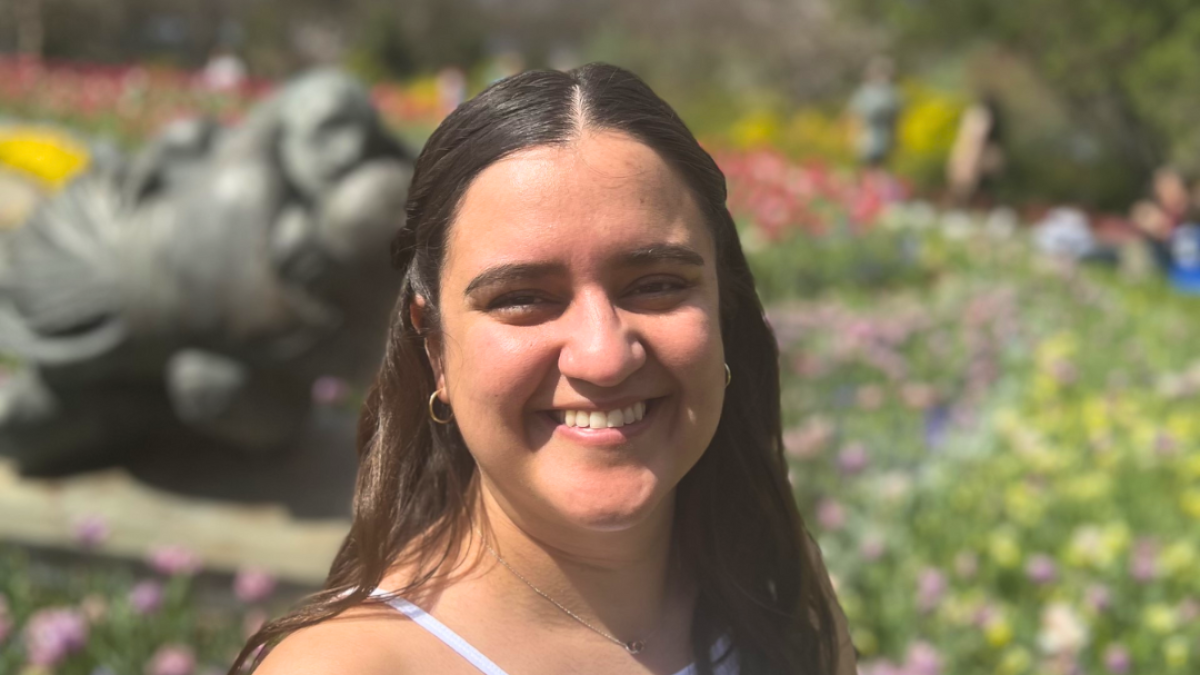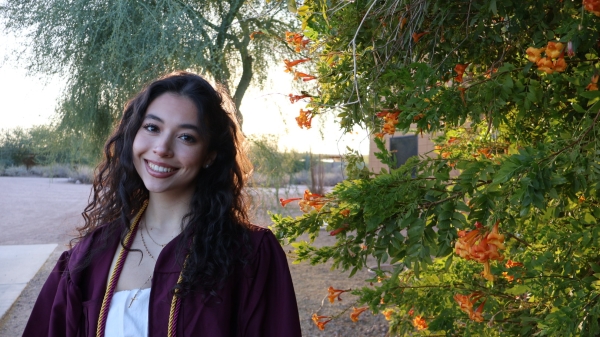Aspiring family life specialist aims to empower families and children

Photo courtesy Desiri King
Editor’s note: This story is part of a series of profiles of notable spring 2024 graduates.
Desiri King knows the influence a good environment can have on children. As a preschool teacher for three years and then a registered behavior therapist at an autism behavior center, she has seen firsthand the positive outcomes of understanding children both socially and emotionally.
Her experiences have shaped her perspective on the importance of early childhood education and the need for empathetic, knowledgeable professionals in the field. They also led her to pursue a bachelor’s degree in family and human development.
“When I was a preschool teacher, I knew I wanted to make more of a difference in children's lives,” she says. “Going back to school I was not sure what degree would be the right path for me, but Family and Human Development caught my eye because working with children is so much more than knowing about their physical development: emotional development and their home environment are also important.”
Now the McKinney, Texas, resident is graduating with a bachelor’s degree in family and human development from the T. Denny Sanford School of Social and Family Dynamics via ASU Online. She’ll then apply to become a certified family life educator, having completed the necessary courses through ASU’s credential program. With this certification, she will be equipped to help families and children communicate effectively and strengthen relationships for better societal outcomes.
As King wraps up her degree and sets her sights on the future, we asked about her experiences and goals as a family and human development graduate.
Question: Why did you choose ASU?
Answer: I was originally at another university pursuing the same degree, but my job offered tuition assistance with several colleges along with ASU. As a non-traditional student, going to school in person and working full time was draining, and it was taking me a lot longer to complete my degree than I wanted. With ASU Online I was able to complete semesters at a much faster pace while also not having to worry about rushing to class. I really liked how ASU had shorter semesters, which allowed me to take four classes in a semester versus two full semester classes.
Q: What’s something you learned while at ASU — in the classroom or otherwise — that surprised you or changed your perspective?
A: In my childhood disorder and family function class, I was really surprised to learn that children can show signs of depression as early as age 3. This really changed my perspective on the need for highly educated teachers but more specifically in early childhood — having a better understanding and realizing that maladaptive behaviors are actually needs that are not being met.
Q: Which professor taught you the most important lesson while at ASU?
A: I had so many inspirational professors, but one of the most important lessons that I learned while at ASU was that self-care is so important. Almost all of my professors gave resources or some sort of activity at the beginning of the semester that would encourage self-care while going to school. In this degree typically, we will end up in helping professions, and I think this was really important to realize and I thought it was amazing because it was reiterated by not one but multiple professors.
Q: What was your favorite spot for power studying?
A: Mostly in my room with my headphones on while listening to Lofi Girl on Spotify. Sometimes, when I had a lot of reading to do, I would change my scenery and either sit outside or go to my local park and read there.
Q: What’s the best piece of advice you’d give to those still in school?
A: Keep organized! Get a planner; color-code your classes along with your personal events. It helps to visualize what is expected that week. Also, writing in assignment due dates a day or two earlier, it really helps with working on them earlier.
Q: What are your plans after graduation?
A: After graduation and my internship is over, I will be getting my CFLE. I hope to use this to help me find a job as a child life specialist or early intervention. No matter what, I know that helping families and their children in any way possible will be the most fulfilling thing to me.
Q: If someone gave you $40 million to solve one problem on our planet, what would you tackle?
A: I would focus on improving access to quality education, especially in underserved communities around the world. Education is a powerful tool for social and economic empowerment, yet millions of children and adults lack access to basic education opportunities due to various factors such as poverty, conflict and inadequate foundations.
I would invest in strategies aimed at enhancing educational organizations, providing resources for schools and training teachers in marginalized communities. This could involve building schools, supplying educational materials such as textbooks and technology, and offering professional development programs for educators to enhance teaching quality.
More Sun Devil community

Hundreds of new Watts College alums celebrate during fall ceremony
Hundreds of new graduates celebrated their first day as Arizona State University alumni Dec. 17 at the Watts College of Public Service and Community Solutions fall 2024 convocation ceremony…

Passion for human behavior drives first-gen student to major in psychology
Editor’s note: This story is part of a series of profiles of notable fall 2024 graduates.Natalie Motta is a driven and accomplished young woman who embodies resilience, ambition and a…

ASU grad turns interest in true-crime podcasts into passion for forensic psychology
Editor’s note: This story is part of a series of profiles of notable fall 2024 graduates.Kymberlin Quackenbush exemplifies resilience and ambition as she prepares to graduate from ASU’s New…